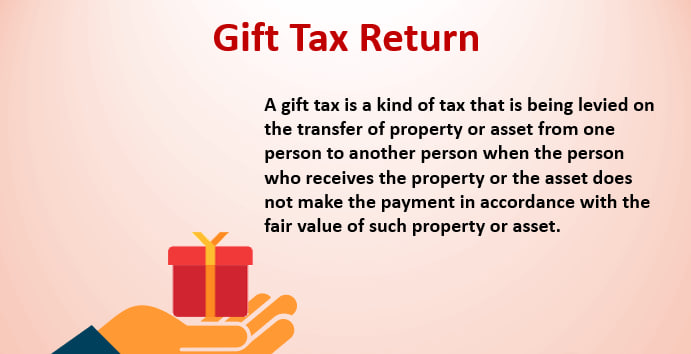
Copyright infringement not intended
Context: In a major relief for investors who participate in strategic disinvestment of public-sector units (PSUs), the Central Board of Direct Taxes (CBDT) has issued a notification that exempts them from paying gift tax on the equity shares they acquire. This exemption was previously available only for sellers of PSUs, but now it has been extended to buyers as well.
Details
- This move is to make strategic divestment in PSUs more attractive and viable, as it will reduce the tax burden on the investors and encourage them to bid for the government's stake in various PSUs. Strategic disinvestment is a process by which the government transfers its ownership and control in a PSU to a private entity, either partially or fully.
- According to income-tax law, any transfer of property without adequate consideration is treated as a gift and is subject to tax in the hands of the recipient. However, there are certain exemptions provided for specific transactions, such as the sale of PSUs under strategic disinvestment.
- The CBDT has amended the law to include the acquisition of equity shares in PSUs under strategic disinvestment as an exempted transaction.
Significance
- Now if an investor buys equity shares in a PSU from the government at a price lower than the fair market value, he or she will not have to pay any gift tax on the difference between the two values. This will make the deal more lucrative for the investor and also help the government achieve its disinvestment target.
- The CBDT notification also clarifies that the exemption will apply only if the acquisition of equity shares is approved by the central government and is under a predetermined plan.
- The notification also specifies that the exemption will not apply to any subsequent transfer of equity shares by the buyer to any other person.
.jpeg)
Gift Tax in India
About
- A gift tax is a direct tax levied on the transfer of property or money from one person to another without any consideration or for inadequate consideration. The person who receives the gift is liable to pay the tax unless the gift falls under certain exemptions.
- The gift tax in India is governed by the provisions of the Income Tax Act, 1961 and the rules made thereunder. The Central Board of Direct Taxes (CBDT) is the apex body responsible for administering and enforcing the gift tax law.
Law
- According to Section 56(2) of the Income Tax Act, any sum of money or any property received by an individual or a Hindu Undivided Family (HUF) from any person during a financial year without consideration or for consideration less than its fair market value exceeding Rs. 50,000 is taxable as income from other sources.
However, there are some exceptions to this rule. The following gifts are not taxable:
- Gifts received from relatives, as defined under Section 56(2) of the Income Tax Act. Relatives include spouse, siblings, spouse's siblings, lineal ascendants and descendants, and spouse's lineal ascendants and descendants.
- Gifts received on the occasion of the marriage of the individual.
- Gifts received under a will or by way of inheritance.
- Gifts received in contemplation of the death of the donor.
- Gifts received from a local authority, as defined under Section 10(20) of the Income Tax Act.
- Gifts received from any fund, foundation, university, educational institution, hospital, medical institution, trust or institution referred to in Section 10(23C) of the Income Tax Act.
- Gifts received from any trust or institution registered under Section 12A or 12AA of the Income Tax Act.
The value of the gift for taxation is determined as follows:
- If the gift is in cash, then the value is equal to the amount of cash received.
- If the gift is immovable property, then the value is equal to the stamp duty value of the property as of the date of receipt.
- If the gift is movable property other than shares and securities, jewellery, archaeological collections, drawings, paintings, sculptures or any work of art, then the value is equal to the fair market value of the property as of the date of receipt.
- If the gift is movable property being shares and securities, jewellery, archaeological collections, drawings, paintings, sculptures or any work of art, then the value is equal to the fair market value of the property as on the date of receipt as determined by a registered valuer.
How to pay?
- The gift tax has to be paid by filing an income tax return for the relevant assessment year and disclosing the value of gifts received as income from other sources. The tax rate applicable will be as per the income tax slab rates applicable to the individual or HUF.
The Gift tax also poses some challenges for both taxpayers and tax authorities. Some of these challenges are:
Determining the fair market value
- Determining the fair market value of the property transferred, especially if it is intangible, unique, or illiquid. For example, how to value a painting, a patent, or a partnership interest that has no readily available market price.
Compliance and reporting
- Ensuring compliance and reporting of gifts, especially if they are made in cash, abroad, or through intermediaries. For example, how to track and verify the source and amount of gifts received from foreign relatives or friends, or from trusts or corporations that act as conduits for gifts.
Double taxation of gifts
- Avoiding double taxation of gifts, especially if they are subject to gift tax in more than one jurisdiction. For example, how to avoid paying gift tax twice on the same property if it is transferred from a US citizen to a Canadian resident, and then from the Canadian resident to another US citizen.
Exemptions and Exclusions
- Providing adequate exemptions and exclusions for gifts that are made for charitable, educational, medical, or other social purposes. For example, how to ensure that genuine donations to qualified organizations are not taxed as gifts and that the donors receive appropriate tax benefits for their generosity.
Revenue objectives of gift tax
- Balancing the revenue objectives of gift tax with its impact on economic efficiency, equity, and incentives for saving and investment. For example, how to set the optimal gift tax rate and threshold that would maximize tax revenue without discouraging productive activities or creating unfair burdens on certain taxpayers.
To address these challenges, some possible ways forward for gift tax are:
Simplifying the rules and valuation methods
- Simplifying the rules and valuation methods for gift tax and providing clear guidance and examples for taxpayers and tax practitioners. For example, adopting standardized valuation formulas or tables for certain types of property, or allowing taxpayers to use appraisals or opinions from qualified experts.
Enhancing the information exchange and cooperation
- Enhancing the information exchange and cooperation among tax authorities, both domestically and internationally, to detect and deter tax evasion through gifts. For example, requiring taxpayers to report certain gifts on their income tax returns, or sharing gift tax information with other countries under bilateral or multilateral agreements.
Harmonizing the gift tax rates
- Harmonizing the gift tax rates and thresholds with other taxes, such as income tax and estate tax, to avoid distortions and inconsistencies. For example, aligning the annual exclusion amount for gift tax with the standard deduction amount for income tax, or indexing the lifetime exemption amount for gift tax to inflation.
Reviewing and rationalizing the exemptions and exclusions
- Reviewing and rationalizing the exemptions and exclusions for gift tax, and ensuring that they are aligned with the policy objectives and social values of gift giving. For example, expanding or narrowing the definition of relatives who can receive gifts without paying gift tax, or imposing limits or conditions on the amount or type of gifts that can be made for charitable purposes.
Evaluating the costs and benefits
- Evaluating the costs and benefits of gift tax, and considering alternative or complementary measures to achieve the desired outcomes of gift taxation. For example, comparing the revenue generated by gift tax with its administrative and compliance costs, or introducing other taxes or regulations that can curb abusive or excessive gift-giving practices.

Conclusion
- Gift tax is a complex and dynamic subject that requires careful planning and compliance. It is advisable to consult a tax expert before making or receiving any gifts that may have tax implications.
Must Read Articles:
Direct Tax: https://www.iasgyan.in/daily-current-affairs/direct-tax
|
PRACTICE QUESTION
Q. Which of the following gifts are exempt from tax in the hands of the recipient?
1. Gifts received from relatives
2. Gifts received on the occasion of marriage
3. Gifts received by way of will or inheritance
How many of the above statements are correct?
A) 1 only
B) 2 only
C) 3 only
D) All
Answer: D
|
https://www.business-standard.com/economy/news/disinvestment-push-buyers-acquiring-psus-shares-exempted-from-gift-tax-123060101066_1.html




